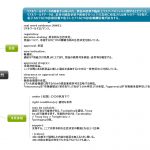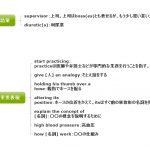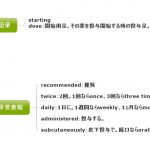
日本語版(English follows)
バイリンガル製薬業界概説について
バイリンガル製薬業界概説では、製薬業界の特有の慣習や仕組みについて、日本語で解説し、それを英語で伝える際のコツを紹介していく。
第6回の今回は治験に係る薬事規制である治験届とGood Clinical Practice(GCP)を採り上げた。
英語版はネイティブスピーカーが朗読した音声付である。
治験までのステップ
治験実施までの主な流れを下記に示した。
- 治験計画・施設選定(実施可能性等検討)
- 治験届提出・PMDA調査終了
- 治験施設への治験依頼
- 治験施設審査委員会(IRB)の審査
- 治験施設との契約締結
- 被験者からの同意取得
- スクリーニング
- 治験開始
治験届
概要
以前別エントリーでカバーしたが、臨床試験を実施することになった場合、治験計画届の提出が必要であり、治験届で届け出たことを変更する場合は治験計画変更届の提出が必要である。
この治験計画届には治験で医薬品がどのような被験者にどのように投与されどのように評価されるかということを規定した治験の計画書を添付する。
この制度は薬機法(80条の2)に規定されており、治験実施者はPMDAを通して厚生労働省に治験計画書を届け出て、PMDAの評価を受ける。また、治験中に生じた重大な副作用はPMDAに報告することが要件として定められている。
臨床試験が終了又は中止した場合は治験終了届又は治験中止届の提出が必要である。
(なお、臨床試験のうち製造販売承認申請のために実施されるものを治験と呼ぶ。治験でない臨床試験には製造販売後臨床試験がある)
初回治験計画届
治験計画届は日本でその医薬品に関して一番最初に届け出する初回と2回目以降で少し対応が異なる。
最初の届出では日本人の安全性担保について厳密に審査されるため、治験施設と契約する30日より前に治験届を提出する必要がある(30日調査、30日ルールとも呼ばれる)。
この調査では主として安全性に関して照会事項が出され、申請者は書面で回答し、必要に応じて治験実施計画書等の添付資料を修正することになる。
照会事項に回答し、必要な資料修正を済ませて30日調査を済ませると、治験施設との契約に進むことができる。
2回目以降の治験計画届
2回目以降の届出では、特別な懸念事項がない限り通常照会事項は発出されず、届出から14日間でPMDAから連絡がなければ、治験施設との契約に進むことができる(14日ルール)。
添付資料
添付資料としては、当該治験を行うことを妥当と判断した妥当性文書、治験の実施計画書、同意説明文書、症例報告書見本、最新の治験薬概要書が必要である。
治験届及び添付資料は日本語で提出する必要があるため、国際共同試験が盛んな現在では、治験は翻訳需要が大きいイベントである。
プロセス・費用
- 届出をPMDAに提出
- 照会事項発出(ほぼ初回計画届のみ)
- 回答提出・資料修正(ほぼ初回計画届のみ)
- 調査終了(初回:30日、2回目以降:14日)
治験届の費用は無料である。
添付資料(計画届のみ)
- 当該治験の依頼を科学的に正当と判断した理由を記した文書
- 治験実施計画書
- インフォームド・コンセントに用いられる説明文書及び同意文書
- 症例報告書の見本
- 最新の治験薬概要書
Good Clinical Practice(GCP)
概要
Good Clinical Practice(GCP)は別名「医薬品の臨床試験の実施の基準に関する省令」とも呼ばれ、臨床試験(治験又は製造販売後臨床試験)を実施する際に必ず順守が必要な基準である。
このGCPはICHのもと国際的に標準化されており、ICH E6ガイドラインで規定されている。
GCPは臨床試験の実施の基準であるが、同時に得られたデータの信頼性を担保する基準である。
このため、GCP順守が承認申請及び再審査の申請資料の信頼性を担保するうえで必要不可欠である。
信頼性基準としてのGCPの本質は、GLPやGMPと同様、組織、人員の要件を満たしたうえで、各業務や試験についてあらかじめ行うことを規定し、実際にその通り行ってデータを採取することにある。
規定した通り行われない場合には、逸脱の対応が必要になる。
GCPの主な内容
- 治験実施者は専門家を擁し、治験実施計画書、手順書(実施機関・治験医師選定、治験薬管理、副作用情報収集、記録保管、治験依頼・管理等)、治験薬概要書及び説明文書を作成する。
- 治験実施者は当該医薬品についての非臨床試験を完了し、被験者に起こりうる健康被害の補償のための保険等の措置を講じ、治験薬を適切に管理・交付し、また治験がGCP、実施計画書にしたがって適切に行われているかモニターする。
- 実施医療機関は指定の要件(医療従事者、副作用報告体制等)を満たし、治験に関する業務の手順書を作成し、治験審査委員会を設置し、また記録を適切に保管する。
- 治験審査委員会は実施者と利害関係がないメンバー及び専門外のメンバーを擁し、治験が倫理的及び科学的に妥当かどうか審議する。実施者は治験審査委員会の指示に従う。
- 治験責任医師は被験者に治験(目的、治験薬の予想効果、副作用、治験参加以外のオプション等)について文書で説明し、文書により同意を得る。
今回紹介ししたトピックについてより詳しく知りたい方はPMDAウェブサイトや医薬品製造販売指針を参照のこと。
English version(英語版)
About Bilingual Pharma Industry Topics
In this Bilingual Pharma Industry Topic series, pharma-industry specific practices or ways of doing businesses are explained in Japanese, followed by tips for conveying the same info in English.
The sixth topic for the series is the clinical trial protocol notice and Good Clinical Practice (GCP) that are regulations regarding clinical trials.
Steps for conducting clinical trial
The below is a generalized flow for conducting a clinical trial.
- Clinical trial planning and site selection (evaluating feasibility)
- Submission of clinical trial protocol notice (CTN) and completion of PMDA review
- Request for conducting clinical trial to clinical site
- Review at institutional review board (IRB)
- Finalizing contract with clinical site
- Obtaining consent from subjects
- Screening
- Start of trial
Clinical trial protocol notice
Overview
As previously covered in a different article, a clinical trial protocol notice needs to be submitted in case a clinical trial is conducted.
If there is any change in the information submitted with the clinical trial protocol notice, a notice of changes in the clinical trial protocol notice is required to be submitted.
This clinical trial protocol notice should be submitted with a clinical study protocol that specifies how the study drug should be administered to which subject groups and how the results should be evaluated.
This notification system is stipulated in the PMDA Act (Article 80, Paragraph 2), and the Sponsor notifies the study protocol to the MHLW via the PMDA.
Also, it is required to report all clinically significant adverse reactions seen during the clinical trial to the PMDA.
When a clinical trial is completed or terminated, a notice of completion or discontinuation of the clinical trial needs to be submitted.
Initial clinical trial protocol notice
A clinical trial protocol notice (often referred to as CTN) can be handled slightly differently whether it is the very first one to be submitted for the drug in Japan or it is the second one or later.
The initial CTN is very rigorously reviewed to secure the Japanese subject's safety; thus, a CTN should be submitted at least 30 days before the contract with a clinical site is finalized (this rule is called the 30-day review or 30-day rule).
In the review, inquiries for safety concerns are mainly issued, which will be responded in writing and by revising the attachments such as the clinical study protocol if necessary.
The Sponsor can proceed to finalizing the deal with the clinical site if the 30-day review is successfully completed with responses to the inquiries and necessary study material revisions.
Second or later CTN
For a second or later CTN, normally no inquiry is issued unless there is a specific concern. The Sponsor can proceed to finalizing the deal with a clinical site as long as the PMDA does not provide specific instructions within 14 days after submitting the CTN.
Attachments
Required attachments are rationale justifying the conduct of the clinical study, clinical study protocol, informed consent form, sample case report form, and most recent investigator's brochure are required attachments.
The CTN and attachments are required to be submitted in Japanese, and thus there is a huge translation demand for this regulatory event with this global study era.
Process and cost
Submitting CTN to PMDA
Inquiries issued (mostly for initial CTN)
Submitting inquiry response and attachment revision (mostly for initial CTN)
Completion of review (initial CTN: 30 days, 2nd or later CTN: 14 days)
No review fee is required.
Attachments (CTN only)
- Rationale justifying the conduct of the clinical study
- Clinical study protocol
- Informed consent form
- Sample case report form (CRF)
- Most recent investigator's brochure
Good Clinical Practice (GCP)
Overview
The Good Clinical Practice (GCP) is also called the Ministerial Ordinance on Good Clinical Practice for Drugs, and it is a required compliance standard for conducting clinical trials.
This GCP requirements are standardized internationally under the ICH initiatives and specified as the ICH E6 guidelines.
The GCP is standard criteria for conducting clinical trials, but at the same time is standard criteria for ensuring data reliability.
This, compliance with the GCP is indispensable for ensuring reliability of submission documents for market approval and re-examination submissions.
The essence of the GCP as reliability criteria is just like the GLP and GMP: to specify what and how it will be conducted for each process and study, to obtain data by conducting what is specified according to the standard operating procedures (SOPs) or protocols along with meeting the organization and personnel requirements.
If something is not conducted according to the predetermined rule, deviation handling is necessary.
GCP requirement summary
- The Sponsor prepares a clinical study protocol, SOPs (for selecting investigators and clinical sites, managing study drug, collecting adverse reaction information, record management, and initiation and management of clinical trials), investigator's brochure, and informed consent form.
- The Sponsor completes nonclinical studies for the drug, should have procedures to compensate possible trial-related injuries (such as an insurance), appropriately handle and supply the study drug, and monitors to see if the trial is conducted according to the GCP and protocol.
- The clinical site prepares SOPs for conducting clinical trials, places institutional review board (IRB), and stores records appropriately, along with meeting the specific requirements (healthcare professionals, adverse reaction reporting system, etc.).
- The IRB, consisting of members without any conflicts of interest to the Sponsor and members who are not subject-matter experts, reviews whether the clinical trial is reasonable from an ethical and science point of view.
- The Sponsor follows instructions from the IRB.
- The investigator provides explanations about the clinical trial (purpose, expected drug efficacy, expected adverse reactions, and other options than joining the trial) to the subject in writing and obtains consent in writing.
For those who would like to know more about the topic, please refer to the PMDA website and Drug Approval and Licensing Procedures in Japan.
解説
専門用語は赤字、製薬必修フレーズを構成する言い回し(製薬必修表現)は青字とした。
専門用語
site selection:施設選定。臨床試験を行う施設の選定。1施設あたり何名の被験者を組み入れられるか等を考慮して決定される。
feasibility :治験の実施可能性。臨床試験が実施可能かどうかの評価。目標症例数と1施設あたりの予想被験者数等を考慮して評価する。
institutional review board (IRB):治験施設審査委員会。治験の実施が倫理的・科学的に妥当かを第3者の立場から判断する機関。治験実施者と直接の利害関係を有さないメンバーや専門家でないメンバーが必ず必要。
consent:(被験者の治験参加への)同意。いわゆるインフォームドコンセント。被験者は文書で治験のメリット・デメリット等、治験に参加しなくてもよく、参加してもいつでもやめることができる旨の説明を受けたうえで、参加する場合には文書で同意を表明する。
screening:スクリーニング。治験は均一な対象集団で評価するために、その基準を満たす被験者を参加させる選択基準と、その基準を満たす被験者を参加させない除外基準がある。スクリーニングは選択・除外基準にあう被験者を選別するステップ。
study drug:治験薬。investigational drugということもできる。治験で主に評価される医薬品を指す。
clinically significant adverse reaction(s):重大な副作用。その医薬品で特に注意を要する副作用。一言でいえば、命にかかわる副作用である。
initial CTN:初回治験届。通常その医薬品に関して、PMDA/MHLWに初めて提出される治験計画届を指す。
rationale justifying the conduct of the clinical study:当該治験を行うことを妥当と判断した妥当性文書。通称「妥当性文書」。それまでに行った試験結果から、その医薬品の治験を行うことが科学的に妥当であると判断した治験実施者の見解を示した文書。
clinical study protocol:治験実施計画書。いわゆるプロトコール。治験の対象被験者、用法・用量、評価項目等、どのように試験を行い医薬品を評価するか記載されている。
informed consent form:インフォームドコンセントに用いられる同意文書。同意説明文書はwritten explanationsである。
case report form (CRF):症例報告書。各被験者についてプロトコールに記載のある評価項目を記載する様式。
investigator's brochure:治験薬概要書。それまでに行われた試験の結果を基に治験薬の特性をまとめた資料。治験施設へ提供される治験薬に関する重要な資料。
Good Clinical Practice (GCP):GCP。本文の解説参照。
Ministerial Ordinance:省令。法律には法、政令、省令、通知の4レベルがある。省令は、各省により制定される法律。この文脈では厚生労働省による省令であり、通常、厚生労働省規則と呼ばれる。
criteria for ensuring data reliability:データの信頼性を担保する基準。いわゆる信頼性の基準。正確性、網羅性、記録がキーワードである。
GLP:Good Laboratory Practice。非臨床試験に関する信頼性基準。
GMP:Good Manufacturing Practice。医薬品の製造・品質に関する信頼性基準。
standard operating procedure(s) (SOP[s]):手順書。組織における標準的な業務の方法を規定した文書。
deviation handling:逸脱対応。
record management:記録管理。必要な文書を法的要件にしたがって必要な期間管理・保管することを指す。
conflicts of interest:利益相反。ある行動が一方の利益になり、一方で他方の不利益になること。利害関係があること。
用語については本サイトの用語集も適宜参照されたい。
製薬必修表現
predetermined:あらかじめ決められた。GCP等の信頼性の基準ではあらかじめ規定されていて、その通りに行ったかどうかが非常に重視される。
meeting specific requirements:特定の要件を満たす
subject-matter experts:(その分野の)専門家
reasonable from an ethical and science point of view:倫理的・科学的な観点から妥当








